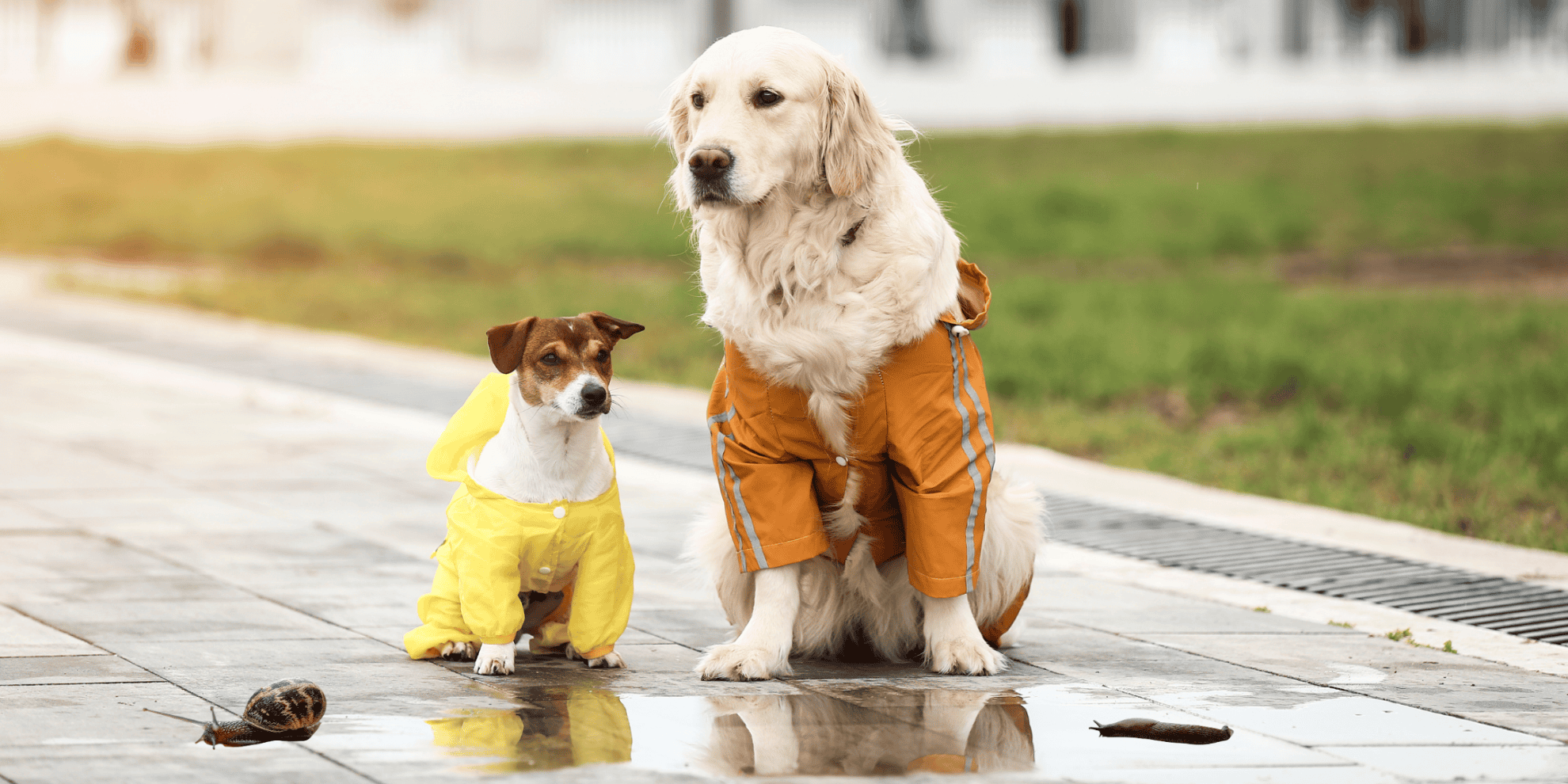
05 Oct Rat Lungworm in Dogs: What Every Sydney Pet Owner Needs to Know
Sydney’s wet weather has a silver lining for gardens, but unfortunately it also brings a dangerous parasite out of hiding: rat lungworm disease in dogs. At Southern Cross Vet, we’re seeing more cases than ever before, and it’s something every pet owner needs to take seriously – especially if you have a young dog or a puppy.
Rat lungworm is caused by the parasite Angiostrongylus cantonensis, which normally lives in rats but uses slugs and snails as carriers. When a dog accidentally eats an infected slug, snail, or even contaminated grass or water, the parasite larvae travel from the gut into the bloodstream, and then to the brain and spinal cord. The result? A potentially deadly infection that can lead to paralysis, seizures, or worse.
Don’t wait until it’s too late. Book your Proheart injection today to help protect your dog against rat lungworm. Call 1300 DOC SAM (1300 362 726) or visit scvet.com.au/book.
Can dogs in Australia really get lungworm?
Yes. Rat lungworm disease in dogs is very much a problem in Australia. In fact, climate change is driving an increase in cases across Sydney and other warm, wet areas (University of Sydney, 2025).
It’s not just rural or bushland dogs at risk. Even city pets that never leave the suburbs can be exposed – all it takes is a single infected slug or snail hiding in the grass at your local park, or a puddle of contaminated water after rain.
Did you know young puppies are more at risk?
Yes, that’s true! Young dogs and puppies are far more prone to this infection than healthy adults, partly because their immune systems aren’t fully developed and partly because puppies are more curious about eating things they shouldn’t.
That means if you’ve just welcomed a new pup into your family, now is the time to be extra cautious.
Protect your puppy with the Proheart injection. Book now at 1300 DOC SAM (1300 362 726) or online at scvet.com.au/book.
Symptoms of lungworm in dogs
Spotting lungworm in dogs can be tricky because the signs vary. Symptoms can include:
- Stiffness or weakness in the legs
- Pain around the spine or back
- Difficulty walking or sudden paralysis
- Seizures
- Loss of appetite or reluctance to move
If your dog has been eating grass, food scraps, or even sniffing around slugs and snails, and you notice any of these symptoms, you need to get them to a vet immediately. Diagnosis usually requires a spinal tap, which is invasive and costly – so prevention is always better.
If you notice any of these signs, call us straight away on 1300 DOC SAM (1300 362 726). Don’t wait.
Can dogs recover from lungworm?
Some dogs do recover, but not without intensive veterinary treatment. Rat lungworm disease in dogs can leave permanent damage to the nervous system, and sadly, not all pets survive. Treatment may take weeks or months, depending on how severe the infection is, and it can be heartbreaking to watch a once-playful pup struggle to walk.
That’s why at Southern Cross Vet, we strongly recommend focusing on prevention rather than waiting until your pet is infected.
Can humans catch rat lungworm from dogs?
This is a common concern. Humans can contract rat lungworm – but not directly from their dog. The infection happens in the same way as it does in pets: by accidentally eating raw produce or water contaminated with infected snails or slugs.
The important thing to remember is that if your dog has the disease, you won’t “catch it” from them. But both you and your pet share the same environment, so if your dog is at risk, you are too.
Book an appointment at Southern Cross Vet to discuss your dog’s risk and prevention plan. Call 1300 DOC SAM (1300 362 726).
How do you treat lungworm in dogs?
There are lungworm treatments for dogs, but they aren’t always straightforward. Depending on how advanced the infection is, your vet may prescribe antiparasitic medication to kill the larvae, combined with steroids or anti-inflammatories to reduce swelling in the brain and spinal cord. In severe cases, hospitalisation is required.
But here’s the truth: once the infection takes hold, treatment is long, costly, and not always successful. Prevention is the safest choice.
At Southern Cross Vet, we recommend Proheart – the annual heartworm prevention injection – because it can really provide protection against rat lungworm for your dogs. This is one of the most effective steps you can take to safeguard your pet’s health year-round.
Call us at 1300 DOC SAM (1300 362 726) to discuss why the injection that is already the best heartworm prevention for your pets will help protect also against rat lungworm.
Should you be worried about rat lungworm in Sydney?
Yes. Rat lungworm isn’t just a problem in tropical countries – there are confirmed rat lungworm Sydney cases, and we expect more with ongoing wet weather and climate change. If you’re a dog owner, this is something to take seriously.
But the good news is you can act now. By keeping your dog away from slugs and snails, avoiding puddles of stagnant water, and choosing the right preventive treatment, you can protect them.
At Southern Cross Vet, we’re here to help with tailored advice, regular check-ups, and Proheart injections to give your dog the best chance of staying safe.
Final thoughts
Rat lungworm disease in dogs is a serious and sometimes fatal condition, and unfortunately, it’s becoming more common in Sydney. Puppies and young dogs are especially vulnerable, and once infected, recovery isn’t guaranteed.
The safest choice you can make for your pet is prevention. At Southern Cross Vet, we recommend the annual Proheart injection as a powerful way to protect against rat lungworm – and give you peace of mind that your pet has the best care available.
Call us now on 1300 DOC SAM (1300 362 726) or book online at scvet.com.au/book to get your dog protected today.
Dr Sam followed his dream of becoming a veterinary surgeon which began at age three. Since then, he has developed a strong interest in oncology, internal medicine and animal behaviour. Dr Sam continues his passion for providing the most up-to-date care to his patients and their two-legged family.
References
University of Sydney. (2025). Climate a factor driving increased cases of rat lungworm disease.
Australian Veterinary Association (AVA) – Parasitic diseases in dogs and cats.
NSW Department of Primary Industries – Rat lungworm information sheet.

